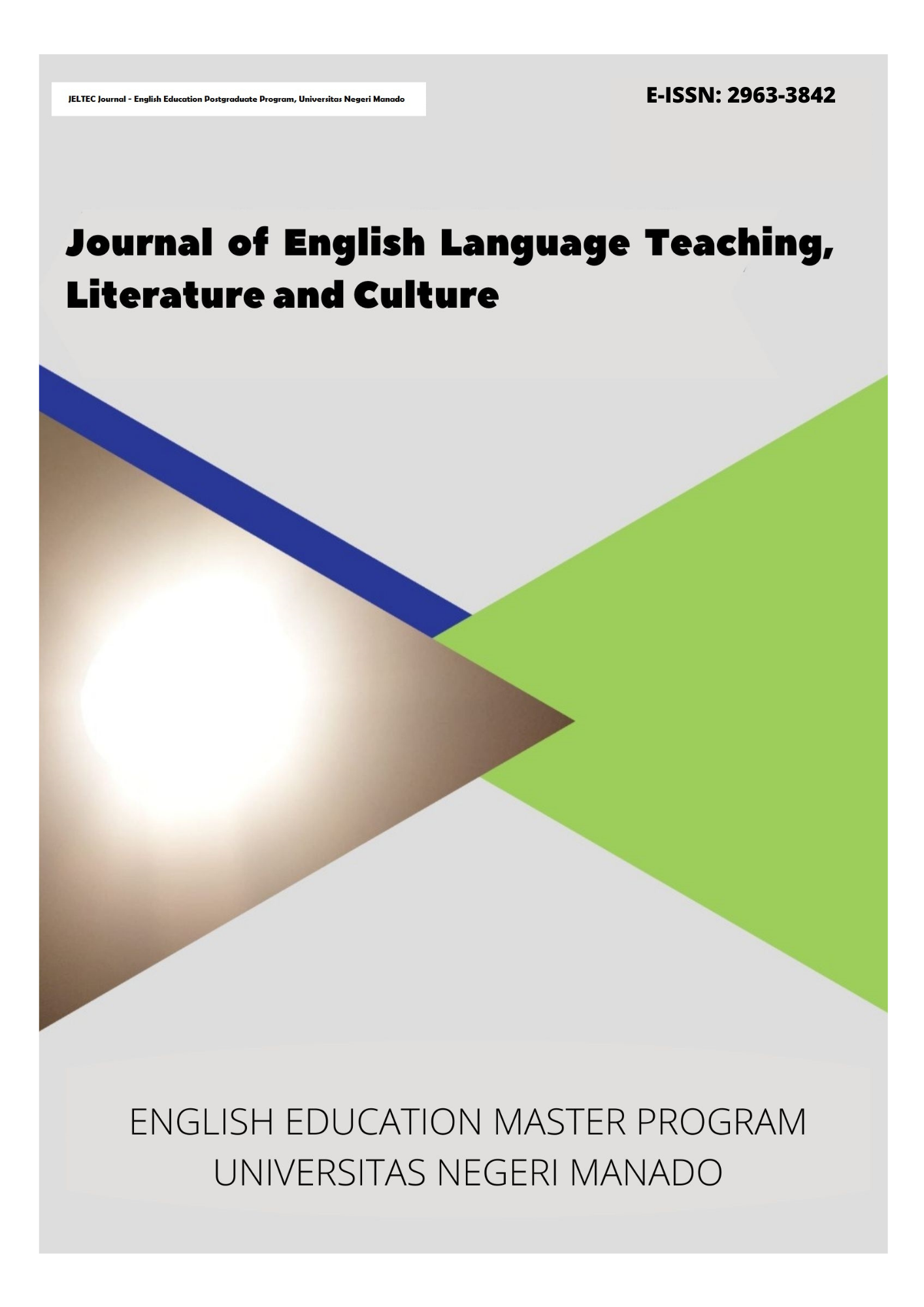The Ability in Constructing WH Questions by the First Year Students of SMP Negeri 10 Kupang in the Academic Year 2022 2023
DOI:
https://doi.org/10.53682/jeltec.v1i2.5679Keywords:
Ability, wh-questions, English Mastery, EFLAbstract
This study was conducted to find out the students mastery level in constructing WH Questions and find out the difficulties faced by the first year students of SMP N 10 Kupang in constructing questions by using WH Questions A Descriptive Quantitative Method was employed to describe the two answers A class of the first year students of SMP N 10 Kupang consisting of 31 students were taken as the sample of this research The instrument of this research was a test of Multiple Choice 30 items and Completion 20 items The result of the research shows that the first year students of SMP N 10 Kupang have not perfectly mastered yet the English WH Questions as shown in the result of the discussion The average percentage of the students mastery level is 69 9 So according to Arikunto s standard measurement this percentage is categorized into Average Level Arikunto 1998 : 226 The highest percentage of the students mastery level in constructing WH Questions is 74 7 for WH Question Who whereas the lower percentage is 57 1 for WH Question How The most difficult problem encountered by the students in doing the test caused they could not differentiate the WH Questions one from another for example they use Who instead of What The difficulties face by the students in doing the test is caused by the students misunderstanding on the rules the English grammar their lack of knowledge of WH Questions and also caused by the inter lingual error where the students influenced by their mother tongues < em>< p>
References
Aida Mas Rahim Abd 2017 The Effectiveness of Using WH Questions in Improving Writing Skill of Upper Primary School Students in Malaysia Journal of Development Research 2230 9926
Alten S W 1974 Living English Structure; A Practice Book for Foreign Students Longman House Burnt Mil Harlow Essez CM20 2JE England
Arikunto S 1998 Prosedur Penelitian Suatu Pendekatan Praktek; Revised Edition IV Rinoka Cipta Jakarta
Azar S B 1992 Understanding and Using English Grammar Bina Rupa Aksara Indonesia
Azar S B 1993 Fundamental of English Grammar Secon Edition Bina Rupa Aksara Indonesia
Datch E F 1988 Research Design and Statistic House Publisher inc USA
Iwan Fauzy 2012 The Acquisition of WH Questions; A simple Case in Indonesian Children JEFL
Gea IM 2022 Errors in Constructing WH Questions Made By The Tenth Grade Students of SMK Grafika Bina Media Medan Kairos ELT Journal
Khaydarovna Nazarova Mukhayyo 2022 The Role of WH Questions in Teaching Speaking Skills at School PEDAGOGS jurnali 2 1 4 8
Surjadi J H 1986 ABC English Grammar Penerbit Indah Surabaya Indonesia
Murphy R 1992 English Grammar in Use First Edition Bina Rupa Aksara Indonesia
Crowther Jonathan 1995 Oxford Advanced Learner s Dictionary fifth edition Oxford University Press Oxford






